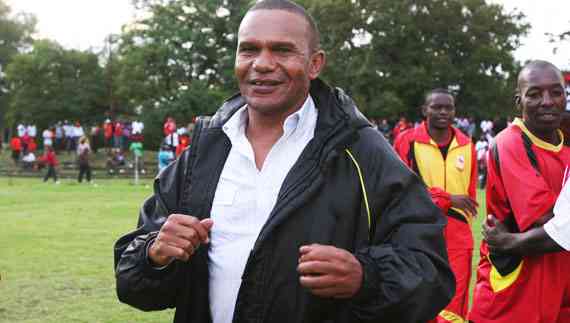
For years Air Zimbabwe has continued to hog the limelight for all the wrong reasons.
Millions of taxpayers’ funds continue to go down the drain as the government tries to keep the sinking airline afloat.
Just last weekend, passengers on board the airline were embarrassed at the OR Tambo International Airport after Bid Air Services, the main baggage handling company in South Africa, seized the plane after Air Zimbabwe failed to pay $500 000 to clear unpaid bills.
Passengers reportedly had to walk to the terminal building as there were no vehicles provided. For how long shall government continue to make promises to deal decisively with the airline?
How many dossiers have to be prepared before action can finally be taken? Who is benefiting from this mess?
There is no doubt that if Air Zimbabwe was a private company it would have been wound down years ago.
How many more millions of taxpayers’ money should vanish before Air Zimbabwe can finally become commercially viable?
Is there political will to deal with the issue? Or somebody wants to continue to fly now and pay later, that is, if they pay at all?
- Chamisa under fire over US$120K donation
- Mavhunga puts DeMbare into Chibuku quarterfinals
- Pension funds bet on Cabora Bassa oilfields
- Councils defy govt fire tender directive
Keep Reading
Air Zimbabwe board chairperson Jonathan Kadzura several months ago told the local media his board lodged a plan termed “A Turnaround Plan for Air Zimbabwe” in 2007. Of course this was not the first one.
The plan was intended to streamline the ballooned payroll by retrenching 409 workers followed by another 300 from the 1 500 employees.
The plan also proposed the shareholder take over the AirZim debt, which at the time was around $60 million and introduce new and more efficient flying equipment. Now the debt has ballooned to over $100 million.
Kadzura said despite the plan having been approved, the shareholder developed cold feet when it came to streamlining the workforce by refusing to pay the packages for the retrenched staff and as a result, the board could not proceed with the next stage of retrenchment. What this means is that the airline remains badly overstaffed.
The problems at Air Zimbabwe are symptomatic of the weakness we have as a country: brilliant blueprints, but without the will to implement the plans.
The government has indicated on numerous occasions it had no funds to bail out the troubled national airline, but could only chip in with insignificant contributions.
What the government is doing through the half-baked interventions is merely treating symptoms without confronting the root cause of the problem.
The mini-interventions the government continues to institute are tantamount to prescribing painkillers to someone who has broken a leg.
Yes, the pain will subside in a way, but that does not mean the person would be on way to recovery.
The nation has lost count of the number of ministers who have headed the Ministry of Transport yet the situation continues to worsen. In other countries ministers, boards and chief executive officers resign over such issues.
But it seems nobody in authority is seeing anything wrong with the goings-on at Air Zimbabwe.
In their paper the Making of an African Success Story: The Privatisation of Kenya Airways Yaw Debrah et al said in Africa, quite apart from their manifest function of economic growth and development, state-owned enterprises (SOEs) assumed a latent political function.
They argue essentially this involved the use of SOEs by politicians for prebendal and patronage purposes such as rewarding allies, co-opting opponents, buying ethnic support, forging alliances across regional and ethnic groups, placating discontent, and building their own power base. SOEs became the funnel for distributing state resources in the form of jobs, rents, power, and prestige.
Sadly it seems Zimbabwe is still in that state. The nation waits for the day when government will finally decide to act on Air Zimbabwe in the interests of the nation— especially the overburdened taxpayer.
For views and comments email:[email protected]











